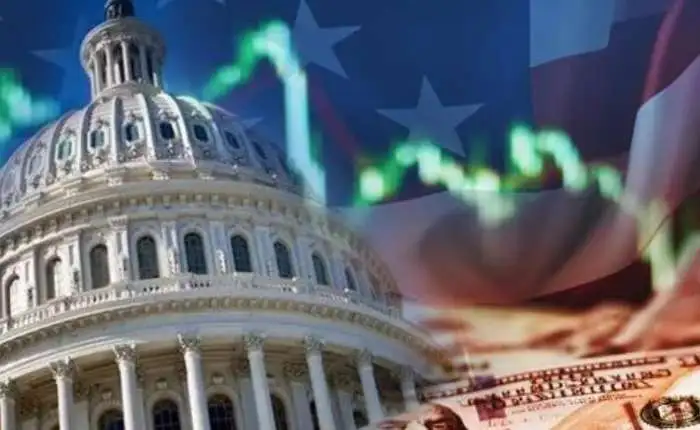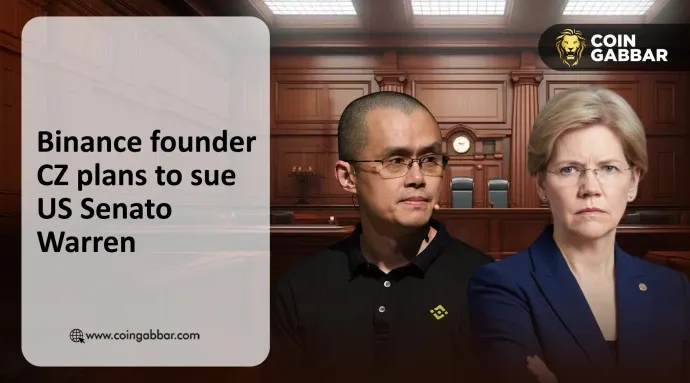It's not that "Web3 events cannot be held in mainland China," but rather a reminder that: some things can be done, but one must understand better how to do them.
Written by: Liu Honglin, Founder of Shanghai Mankun Law Firm
According to reports, the Solana Accelerate APAC event in Shenzhen was abruptly ended due to police intervention, and subsequent project roadshows were halted, with Solana Foundation Chair Lily present at the scene.
Once the news broke, the community was immediately abuzz—WeChat groups and social media were discussing: does this mean that Web3 events can no longer be held in mainland China? Has the regulatory attitude changed again? "If even Solana can't do it, who would dare to try?"
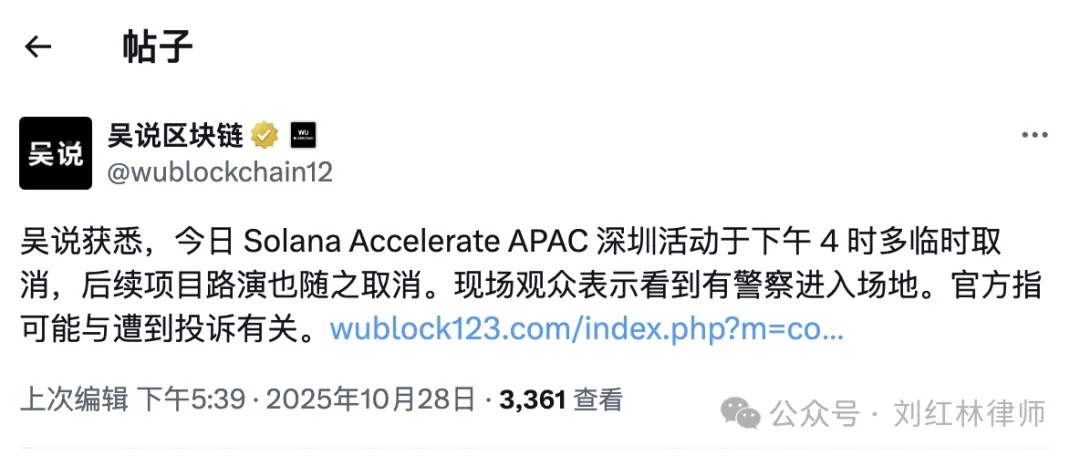
In my view, such voices are more of an emotional reaction. The reality is actually simpler and more nuanced than the rumors suggest. This is not a tightening of regulatory policies in mainland China, but more likely just an accident.
Coincidentally, just last Friday, Lawyer Honglin was invited to participate in a similar Solana event in Shanghai, where he was invited as a roundtable guest speaker. Therefore, he has some understanding of the execution details of Solana's offline events and feels it is necessary to write an article to share with everyone how to conduct similar blockchain offline communication activities more safely and compliantly in mainland China.
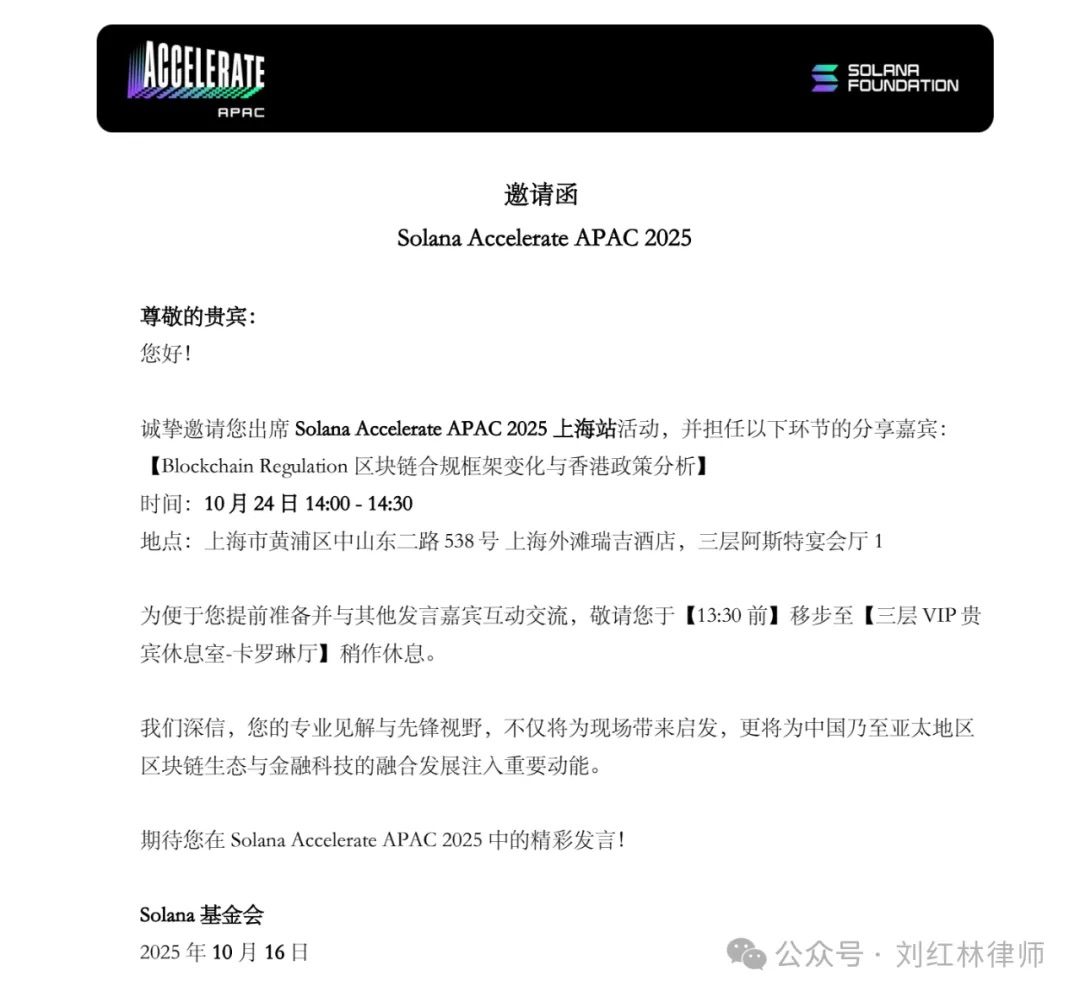
I was very impressed with the organization of Solana's event; the team members were very professional. The foundation's team communicated with all guests about speaking points several days in advance, detailing everything to the point of being an industry model. They clearly required: no discussions about coin prices, no predictions about regulation, and no comparisons of domestic and foreign policies, focusing only on topics like technology, ecology, infrastructure, and open finance.
They even prepared a bilingual "safe expression" template, such as—"Today we mainly focus on global technology trends and innovation exchange," "Respecting local regulatory frameworks, we hope to discuss the future of blockchain from a technological and industrial perspective," and "Technology and compliance can support each other and jointly promote innovation." It is evident that the Solana team has a much higher understanding of the Chinese context and risk awareness than the industry average. This was one of the best events I have attended in terms of compliance.
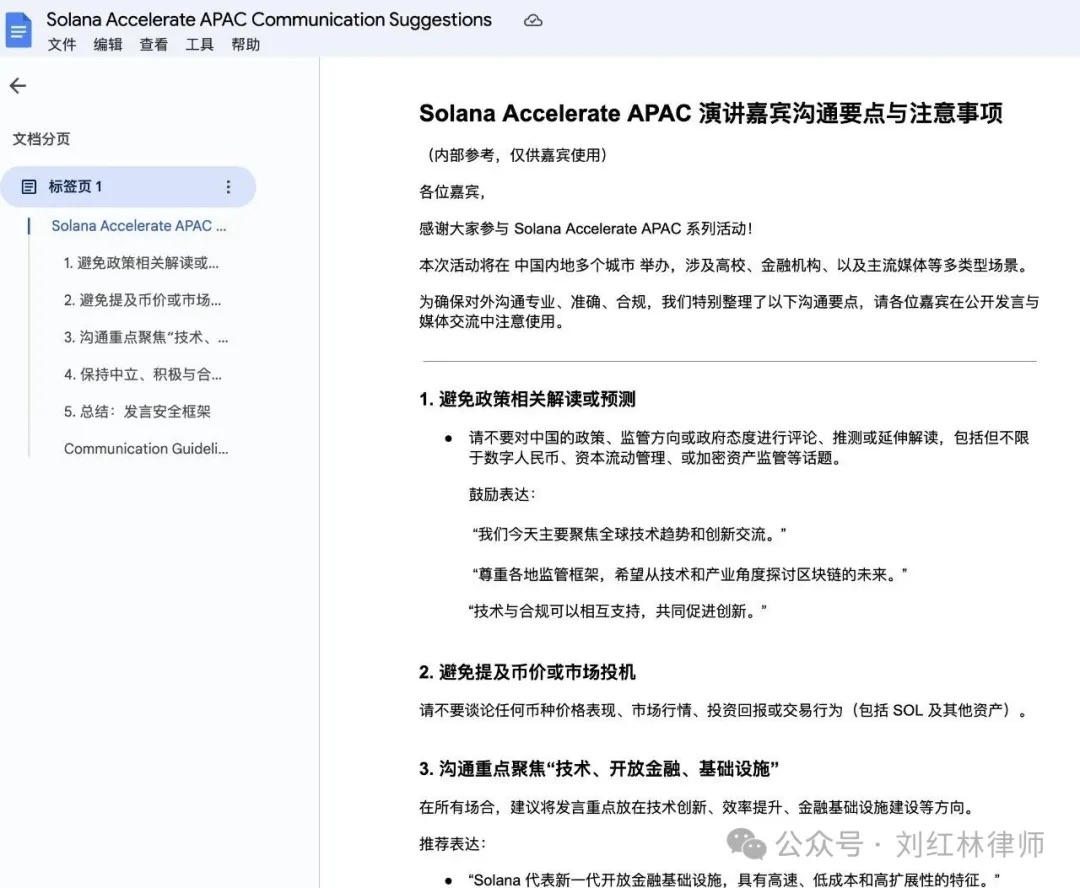
According to Lawyer Honglin's understanding of the industry situation, the police intervention in Shenzhen was more likely due to malicious reports stemming from investment disputes involving a guest or an exhibiting project, leading to police involvement. Law enforcement agencies, upon receiving a report, do not distinguish whether you are at a "Web3 conference"—as long as there are suspected illegal clues, they must respond. In other words, this is not about "Web3 events cannot be held in mainland China," but rather a reminder that: some things can be done, but one must understand better how to do them.
From the perspective of industry legal compliance practitioners, Lawyer Honglin believes that Solana's offline event and the communication methods with speakers, as well as compliance documents, are worth learning from for every practitioner organizing events in the industry. They clearly articulated five key boundaries for event communication, which also summarize how to legally and healthily conduct Web3 exchanges in China.
First, avoid policy interpretation and regulatory predictions. Any remarks involving "regulatory trends" or "policy signals," even if well-intentioned speculation, will be amplified by the media into "attitude statements." In public settings in mainland China, the safest approach is: respect regulation and do not speak on behalf of regulators. One can discuss global trends and technological practices, but should not "find excuses" for policies.
Second, do not touch on coin prices and investment returns. Any mention of coin prices, market conditions, or ROI, whether as examples, jokes, or metaphors, may be misinterpreted as promoting coins or guiding investments. Coin prices are not the only indicator of industry value; focusing on technology and applications is the most prudent strategy.
Third, focus on technology, ecology, and infrastructure. These are the safest and most substantively valuable topics in the Chinese context. Discussing TPS, development efficiency, and global collaboration is not only compliant but also demonstrates professionalism. Solana's emphasis on "open financial infrastructure" during the event is a good positioning.
Fourth, maintain a neutral and cooperative attitude. Avoid making country comparisons, do not use expressions like "China vs. other countries," and do not use Hong Kong as an example to imply "the mainland is lagging." The correct expression is: regulatory rhythms differ across regions, but the goal is to allow innovation to grow within a controllable framework.
Fifth, prepare for filing and emergency mechanisms in advance. This point is often overlooked. In fact, reporting to the venue, park, or street authorities before the event is a very effective risk defense. Of course, if one can co-host the event with relevant industry associations and government departments, that would be even better. In the event of complaints or misunderstandings, having a filing on hand allows for immediate clarification of the event's nature. Additionally, guests should be required to sign a compliance commitment, clearly prohibiting coin promotion, marketing, and investment inducement. Finally, prepare an emergency statement template to respond promptly in case of law enforcement or public opinion issues, avoiding secondary misunderstandings.
These measures may seem cumbersome, but they are actually a matter of bottom-line thinking.
From a broader perspective, China's policy attitude towards blockchain has always been clear: support technological innovation, oppose financial speculation; support the digital economy, oppose token financing. The policy boundaries are stable and clear.
The so-called "sudden change in direction" is mostly external misinterpretation. Over the past few years, whether it is blockchain + supply chain finance, digital asset rights confirmation, or cross-border data governance and judicial evidence preservation, the national level has been continuously encouraging the innovation and implementation of blockchain technology.
Just yesterday, Lawyer Honglin participated as a review expert in a blockchain special application selection work for a district government in Shanghai, where the Shanghai government is genuinely encouraging blockchain entrepreneurial teams that are truly doing things.
In other words, the real taboo is not blockchain, but "token financialization" and "using blockchain as a facade for scams." Understanding the boundary between technological encouragement and financial restrictions is the basic skill for doing Web3 in China.
Looking back at the industry's history over the years, from the "blockchain conference being halted in Beijing in 2018," to the "metaverse salon being interviewed in 2021," and now to the Solana Shenzhen incident, each "clearing" is not a crackdown on innovation, but a message to everyone: industry exchange activities can be conducted, but they require more nuanced wisdom.
免责声明:本文章仅代表作者个人观点,不代表本平台的立场和观点。本文章仅供信息分享,不构成对任何人的任何投资建议。用户与作者之间的任何争议,与本平台无关。如网页中刊载的文章或图片涉及侵权,请提供相关的权利证明和身份证明发送邮件到support@aicoin.com,本平台相关工作人员将会进行核查。

